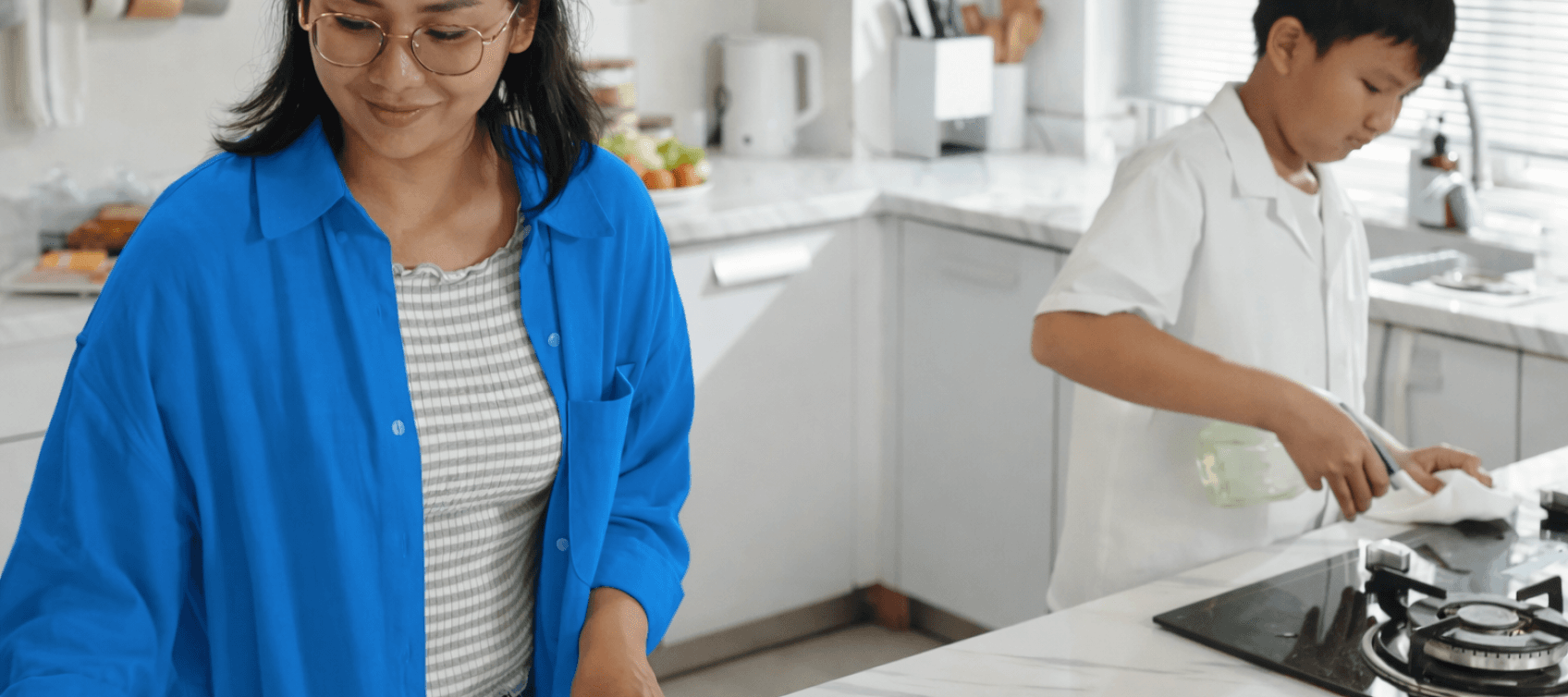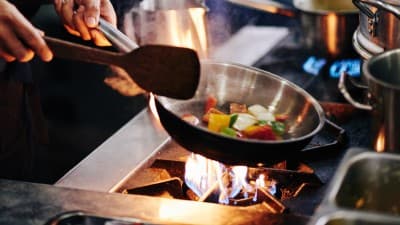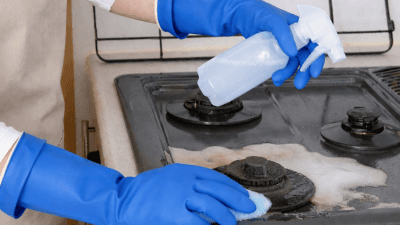The days are getting longer, the weather is warming up, and it’s the perfect time for some spring cleaning. Get your home ready for summer entertaining, whether that’s hosting the big match, drinks with the gang, or a birthday party for one of the kids.
Spring cleaning is the perfect time to check and clean your gas appliances. Below, we’ve put together a quick guide on how to get each one ready for another year of reliable service. At Firstgas, we believe gas can continue to have a future in New Zealand - and with the right care, your appliances can keep performing efficiently for many years to come.
Get your gas cooktop sparkling clean
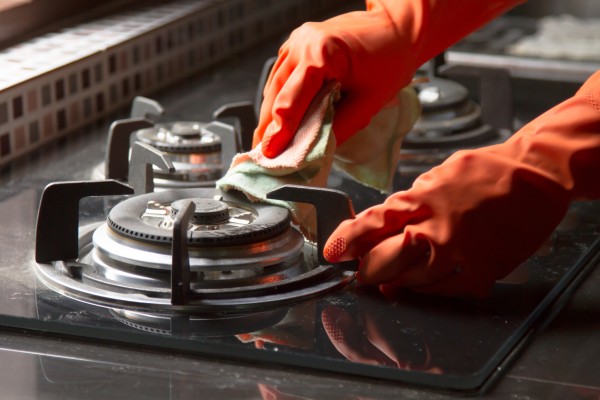
Source: iStock
Natural gas is the chef’s choice for delivering precision heat, but stainless steel cooktops sometimes get a bad rap when it comes to ease of cleaning. Don’t worry, it’s not at all difficult to get your gas stovetop sparkling clean:
- Once the cooktop has completely cooled, switch off the power to the appliance.
- Remove the grates, knobs, burner caps and burner heads. (Remember where each one goes so you can reassemble it correctly.)
- Wash the knobs, burner caps and heads in warm, soapy water. Use a gentle detergent, plus a plastic scouring pad to remove any burnt-on food. Rinse and dry thoroughly.
- Clean the stovetop surfaces using a soft, damp cloth. Avoid abrasive cleaners. Dry with a soft cloth.
- Reassemble the dry parts in their correct places.
Also make sure your rangehood filter is clean so it performs at its best. Remove the filter, soak it in warm soapy water, and scrub with a scouring pad to get rid of any grease.
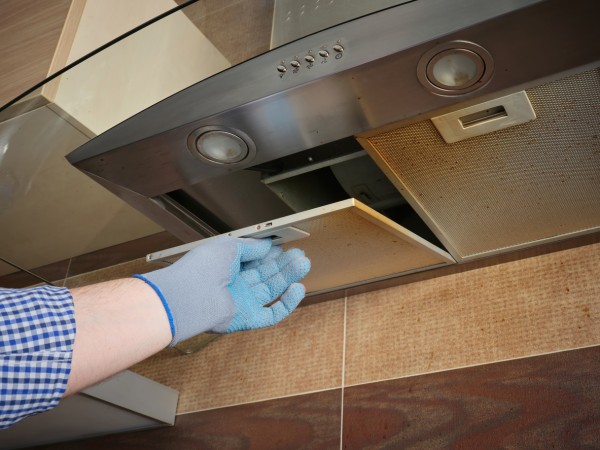
Sourced: iStock
Clean out grilles, vents and fireplaces
Most fixed gas heating systems in the home have grilles and vents. These easily collect dust and hair, which can build up to make your heating less efficient. It’s a simple fix: just grab your vacuum cleaner’s brush attachment and vacuum the grilles and vents.
Your beautiful gas fireplace also deserves a little TLC this spring. Before you clean your gas fireplace, make sure the gas is switched off. Then you can vacuum or dust away any dust, hair and cobwebs, as well as cleaning any glass or metal surfaces. The user manual from the manufacturer will guide you on what types of cleaners are best.
Gas fireplaces, gas central heating, and all other gas heating systems must be serviced by a qualified gas fitter. Ideally, you should get these checked once a year, so why not book in a check?
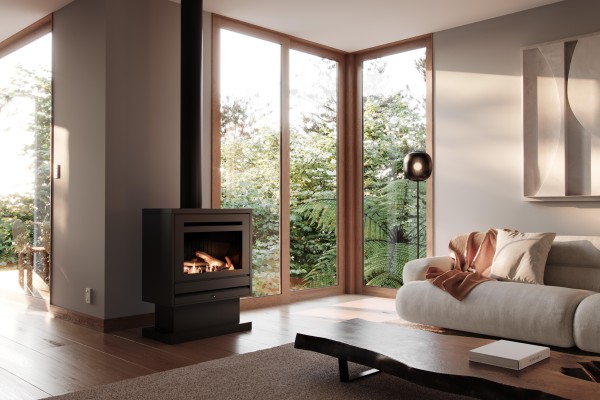
Sources: Rinnai image used for illustrative purposes only
Inspect all your outdoor gas appliances
The outdoor parts of your gas water system or gas heating can attract pests, weeds and garden debris. It’s useful to clear these away so your gas appliances can perform optimally. This includes checking your outdoor heaters, outdoor gas fireplace, patio heater, and your barbeque. Inspect them for damage, deterioration, and for any plants or bugs that might have found their way into your appliance.
Now is also a great time to give your barbeque a comprehensive clean. Here are a few tips so you can cook up a storm this summer.
- Preheat before cleaning. Turn your BBQ on high for 10–15 minutes before cleaning. This burns off most leftover food and grease, making it easier to brush off debris.
- After heating, use a sturdy wire brush or scraper to remove charred bits. If your grill is porcelain-coated, opt for a nylon or brass brush to avoid scratching.
- Once cool, remove the grates and soak them in hot water with dish soap for 15–30 minutes. Scrub off any remaining residue and rinse thoroughly.
- Carefully remove and brush off burners with a soft brush or toothbrush. Make sure the burner holes are clear to ensure even heat distribution.
- The drip tray collects grease, which can cause flare-ups. Empty it after every few uses and wash it with warm, soapy water.
- Use a BBQ-safe degreaser or vinegar-water solution to clean the inside of the lid and walls.
- After cleaning and drying, lightly coat the grates with cooking oil. This prevents rust and makes food less likely to stick next time.
- Always use a weatherproof cover to protect your BBQ from the elements - especially during the off-season.
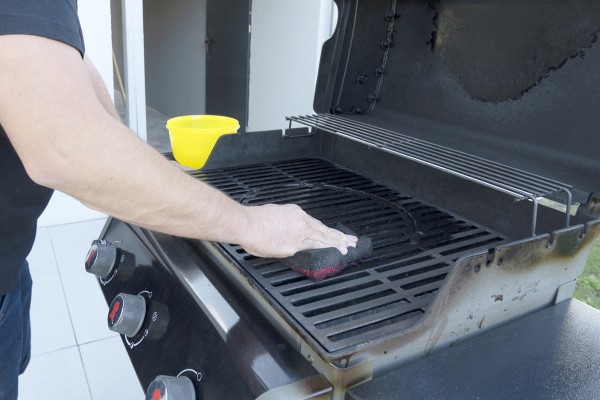
Source: iStock
Learn more about the future of gas
Hundreds of thousands of Kiwis live in homes connected to natural gas, enjoying instant and adjustable heat, hot water, and cooking. Gas is an important fuel for the transition towards a lower-emissions future. You can learn more about our renewable gas projects, along with our sustainability efforts, in our 2024 Sustainability Report, or visit Future of Gas to learn more about why we’re investing in renewable gas projects, from upgrading biogas into biomethane to trialling hydrogen blending, to help achieve this goal.

